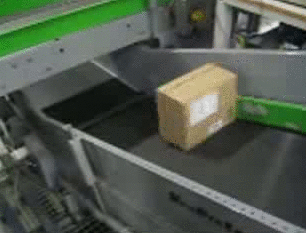You and I each manufacture and sell televisions.
We've been pitched in competition for decades, and you know that one of my staff will be first in line to buy and reverse-engineer any new set you release. Without IP laws, there's nothing stopping me from cashing in on your investment.
You might assume you have very little incentive to invest in research and development under these circumstances; but let's imagine that you did it anyway.
Your boffins have come up with a great new television innovation and shown you a prototype. It's blown you away, and you believe consumers will be equally impressed.
You commision some intensive market research to gauge consumer sentiment and likely market penetration; and engage an advertising agency to start looking at marketing ideas. You impose non disclosure agreements on these and other suppliers throughout the development of the product.
The new design requires widgium, an otherwise unremarkable element, with few other industrial uses.
You negotiate favourable terms on 20 year contracts with the nearby widgium refineries to secure your projected requirements.
As you finish the testing and refinement of the design, you deplete stockpiles of your existing product as you begin retooling for the production of the new televisions.
A few months later you sell all of your shares in my company, at a slight discount; run a brilliant, intensive add campaign for a few weeks; then start selling your new design in stores.
My man is first in line, and there's nobody stopping me from ripping you off and stealing your idea.
My team have pulled it apart and know how it works by the end of the day.
I rub my hands in glee, until I discover it isn't quite that simple.
I had a 4 month stockpile of traditional televisions which just became a 4 year stockpile, which I have to sell at a huge markdown, because everybody wants one of your new sets instead.
I still owe my suppliers and staff, but each TV brings in less than half what it cost me, and a quarter of what I budgeted for, which hurts my cash holdings; holdings I recently depleted buying back some cheap shares in my own company.
The bank offers emergency finance at high interest, which keeps me solvent and lets me start negotiating with widgium suppliers, who've all noticed that demand has increased dramatically, and price their widgium accordingly.
Six months later, I've refinanced, re-engineered, retooled, and refilled my supply chain with shameless copies of your revolutionary design.

They're a little more expensive, because I've had to spend more on widgium.
They're a little late, since everybody who wanted one has already bought one from you.
They're a little outdated, since they're based on your first model, and you've just announced a new, improved version.
Worst of all, everybody knows that mine are a knock-off because your marketing over the last six months focused on identifying your brand as the originator of the technology. I find myself selling to those few customers who don't mind supporting copycats, who wait six months before buying an exciting new technology, and who are happy to pay more than they have to, for an already outdated product.
When you invent something, you don't just know what it is and how it works, you know that you know, and you know that other people don't know.
Your competitors don't know, your suppliers don't know, and your customers don't know. There are an incredible number of ways to leverage this knowledge disparity in order to dominate the market.
Investment in research and development won't stall in the absence of armed enforcers.
Businesses won't stop bringing exciting new products to market.
We were innovative and daring before IP laws came along, and we'll be innovative and daring long after they're gone.
Have a fantastic day.

The item so many forget and thus never put into their equations...the element of time.
industries without ip do better
True. Most innovation occurs away from heavily regulated, heavily patented industries.
I heard we've had viable 3D printers available for years but the patent holder was charging too much for the market to tolerate. Apparently dozens of manufacturers have been waiting years for his patent to expire, hence the sudden boom.